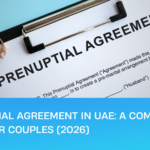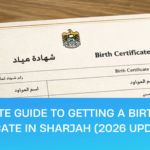Case Study: Why a Foreign Company Was Not Able to Get a Title Deed

A foreign company (the “Company”) acquired an off-plan property in Dubai before January 2011, when it was still permissible for overseas companies to own real estate in Dubai’s freehold areas. The property’s construction was completed in 2019, and the Company sought to take possession and obtain the Title Deed.
For guidance on changing ownership details, see our guide on how to add or remove a name from a property Title Deed in Dubai.
Issue Faced
Effective January 1, 2011, the Dubai Land Department (DLD) implemented policies restricting offshore companies—except those registered in the Jebel Ali Free Zone Authority (JAFZA)—from owning real estate in Dubai. Following these policy changes, the Company, being a foreign offshore entity not registered in JAFZA, was unable to register for a Title Deed despite having purchased the property prior to 2011.
Legal and Regulatory Framework
- Law No. 7 of 2006 on Real Property Registration:
This foundational law allows foreign natural and legal persons to acquire freehold or usufruct property rights, subject to approval by the Ruler of Dubai. - DLD Policy Changes Since 2011:
In practice, the DLD restricts property ownership for offshore companies from jurisdictions such as the BVI, Cayman Islands, Panama, and others, except JAFZA-registered entities. Foreign onshore companies have also faced increased restrictions more recently.
These policies are non-retrospective; properties purchased and registered before 2011 remain valid, but new registrations or title deed issuances after the policy cutoff for restricted companies are generally denied. - Rationale for Restrictions:
The restrictions aim to improve transparency, track ultimate beneficial ownership, prevent anonymous share transfers, avoid fees, and combat money laundering.
The Client’s Situation
Although the Company acquired the property legally before the policy change, the delay in project handover meant the Title Deed registration request occurred well after 2011, triggering the application of the new restrictive policies.
Proposed Solutions
After detailed consultation with the DLD and review of applicable regulations, two primary solutions were proposed:
- Option A: Gift Transfer to Individual Shareholders
Transfer the property ownership from the foreign company to its ultimate beneficial owners (individual shareholders) in their respective ownership proportions. This requires the submission of legalized and attested corporate documents proving shareholder identities and obtaining DLD approval. - Option B: Transfer to a JAFZA Offshore Company
Establish a new offshore company in JAFZA, wholly owned by the original company or its shareholders, and transfer the property ownership to this JAFZA entity. This involves company setup costs and regulatory approvals, but allows retention of corporate ownership.
The client preferred Option A for its cost efficiency. The process involved thorough documentation, attestations from UAE Embassy and the Ministry of Foreign Affairs, and DLD approvals. Upon completion, the Title Deed was issued in the individual shareholders’ names.
Additional Notes and Current Trends
- The DLD and UAE regulators have since intensified requirements for disclosure of ultimate beneficial owners, proof of legal compliance, and anti-money laundering checks.
- Other free zones, such as DIFC, RAKICC, ADGM, and DMCC, also offer pathways for corporate ownership of property but with their own regulatory frameworks.
- Property investors should carefully consider the corporate structure and jurisdictional status when purchasing real estate in Dubai to avoid post-handover registration issues.
Conclusion
This case remains a common scenario due to regulatory changes in 2011 impacting offshore companies. Foreign investors owning property through offshore companies face hurdles obtaining title deeds if registration was not completed before the cutoff date. Gift transfers to individual shareholders or restructuring ownership through approved free zones like JAFZA, RAKICC, DIFC,and ADGM continue to be practical solutions, albeit under stricter compliance regimes.
For anyone facing similar challenges, seeking early professional advice and keeping abreast of the latest DLD policies is essential.
Disclaimer: The content on this page is for general information purposes only and does not constitute as legal advice nor should it be used as a basis for any specific action or decision. Nothing on this page is to be considered as creating a lawyer-client relationship or as rendering of legal advice or legal services for any specific matter. Users of this website are advised to seek specific legal advice from their lawyer or a legal counsel regarding any specific legal issues.





